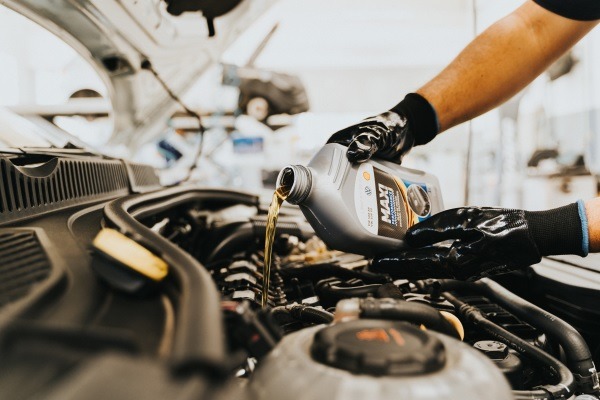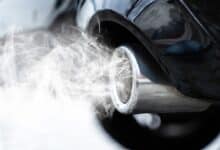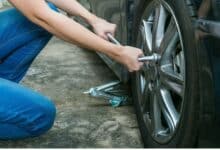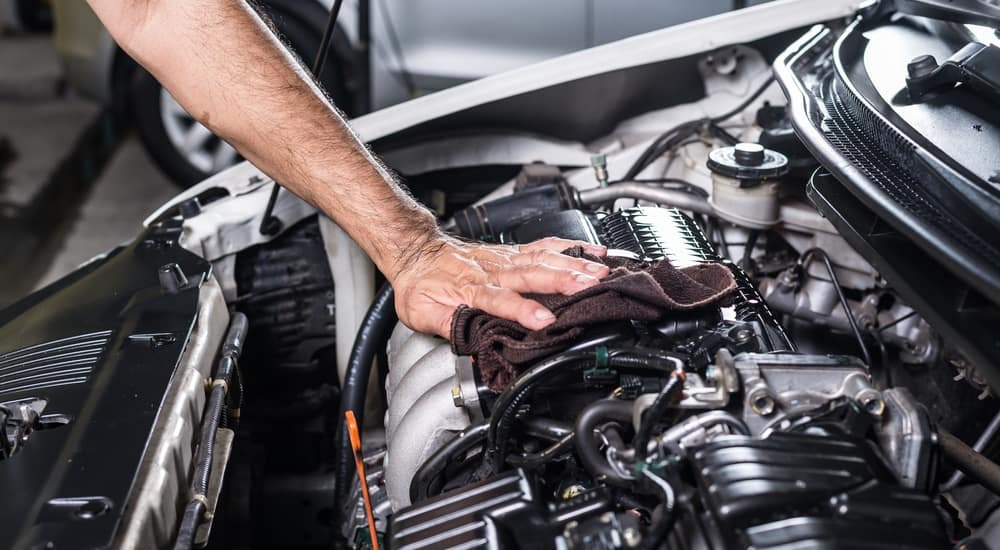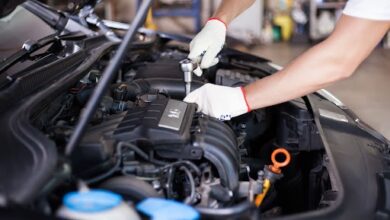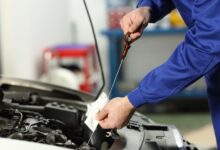The Ultimate Guide to Vehicle Engine Maintenance

Your vehicle’s engine is the heartbeat of its performance, and proper maintenance is key to ensuring it operates at its best. This ultimate guide is your comprehensive resource for mastering the art of vehicle engine maintenance. From routine checks to addressing common issues, we will explore the intricacies of keeping your engine in peak condition. Dive into essential tips, best practices, and insightful techniques that empower you to safeguard the heart of your vehicle. Discover the steps to enhance longevity, efficiency, and overall performance, ensuring a powerful and reliable driving experience. Let this guide be your roadmap to unleashing the full potential of your vehicle’s engine.

Contents
- 1 Understanding the Importance of Engine Maintenance
- 2 Routine Inspections
- 3 Oil Changes
- 4 Cooling System Maintenance
- 5 Fuel System Maintenance
- 6 Timing Belt Replacement
- 7 Regular Tune-ups
- 8 Drive Responsibly
- 9 Keep an Eye on Warning Signs
- 10 The Ultimate Guide to Vehicle Engine Maintenance: A Comprehensive Manual
Understanding the Importance of Engine Maintenance
Your vehicle’s engine is the heart of its performance. Neglecting engine maintenance can lead to reduced fuel efficiency, decreased power output, and even engine failure. Regular maintenance helps identify potential issues early on, allowing you to address them before they become major problems. By investing time and effort into maintaining your engine, you can save money in the long run and avoid inconvenient breakdowns.
Routine Inspections
Regular inspections are the foundation of effective engine maintenance. Here are some key areas to focus on during your inspections:
Fluid Levels
Check the levels of essential fluids such as engine oil, coolant, transmission fluid, and brake fluid. Low levels can lead to engine overheating, increased friction, and accelerated wear and tear. Maintain the appropriate fluid levels as recommended by your vehicle’s manufacturer.
Belts and Hoses
Inspect the condition of belts and hoses for signs of wear, cracks, or leaks. These components play a vital role in the proper functioning of your engine’s cooling system and other systems. Replace any damaged belts or hoses promptly to prevent potential failures.
Air Filters
Clean or replace air filters regularly to ensure optimal air intake into the engine. Clogged air filters restrict airflow, reducing fuel efficiency and overall performance. Refer to your vehicle’s manual for specific recommendations on filter cleaning or replacement intervals.
Battery Condition
Check your battery’s terminals for corrosion and ensure a secure connection. Weak or faulty batteries can cause starting issues and result in strain on other electrical components. Consider having your battery tested periodically to ensure it is in good condition.
Ignition System
Inspect spark plugs and ignition wires for signs of damage or wear. Faulty spark plugs can lead to misfires, reduced fuel efficiency, and rough idling. Replace spark plugs as recommended by your vehicle’s manufacturer.
Oil Changes
Regular oil changes are vital for maintaining engine performance and longevity. Engine oil lubricates moving parts, reduces friction, and helps dissipate heat. Over time, oil becomes contaminated with dirt, debris, and sludge, losing its effectiveness. Follow these guidelines for oil changes:
- Check your vehicle’s manual for the recommended oil change interval.
- Use the appropriate grade and type of oil as specified by the manufacturer.
- Replace the oil filter with every oil change to prevent contaminants from circulating through the engine.
- Consider using synthetic oil, which offers better protection and lasts longer than conventional oil.
See more: The Importance of Specialized Vehicle Care Service
Cooling System Maintenance
The cooling system plays a crucial role in regulating engine temperature. Overheating can cause severe damage to engine components. To maintain an efficient cooling system:
Coolant Level and Quality
Regularly check the coolant level in the reservoir and inspect its color and condition. Low coolant levels or dirty coolant may indicate a leak or contamination. If necessary, flush and refill the cooling system as per your vehicle’s maintenance schedule.
Radiator Maintenance
Inspect the radiator for any debris or obstructions that may hinder airflow. Clean the radiator fins gently using compressed air or a soft brush to remove dirt and debris buildup.
Thermostat Check
Ensure that the thermostat is functioning correctly to regulate coolant flow through the engine. A faulty thermostat can cause overheating or inefficient cooling.
Fuel System Maintenance
Maintaining a clean and efficient fuel system is essential for optimal engine performance and fuel economy. Here’s how you can keep your fuel system in top shape:
Fuel Filter Replacement
Regularly replace the fuel filter as per your vehicle manufacturer’s recommendations. A clogged fuel filter can restrict fuel flow and reduce engine performance.
Fuel Injector Cleaning
Over time, fuel injectors can accumulate deposits that affect fuel atomization and combustion efficiency. Consider periodic fuel injector cleaning to maintain optimal fuel delivery and prevent issues like rough idling or reduced power.
Quality Fuel Usage
Always use high-quality fuel from reputable sources to prevent contamination that could harm your engine components.
Timing Belt Replacement
The timing belt plays a critical role in synchronizing the engine’s camshaft and crankshaft rotation. Over time, timing belts can wear out or break, leading to severe engine damage. Refer to your vehicle’s manual for recommended timing belt replacement intervals, as they vary depending on the make and model.
Regular Tune-ups
Scheduled tune-ups allow professional mechanics to inspect your engine thoroughly and address any underlying issues. During a tune-up, they may perform tasks such as:
- Checking and adjusting ignition timing
- Inspecting and replacing spark plugs
- Inspecting and adjusting valve clearance
- Testing and cleaning the throttle body
- Verifying proper functioning of sensors
The Importance of Checking and Changing the Base Water on Your Vehicle
Drive Responsibly
Your driving habits can significantly impact your engine’s health and longevity. Here are some tips for responsible driving:
- Avoid aggressive acceleration and braking.
- Gradually warm up your engine before putting it under heavy load.
- Adhere to recommended speed limits.
- Avoid excessive idling.
- Use lower gears when driving uphill or towing heavy loads.
Keep an Eye on Warning Signs
Being vigilant about warning signs can help you catch potential engine problems early on. If you notice any of the following signs, have your vehicle inspected by a qualified mechanic:
- Check Engine Light illuminates.
- Unusual noises such as knocking, grinding, or squealing.
- Decreased performance or reduced fuel economy.
- Rough idling or stalling.
- Engine overheating.
The Ultimate Guide to Vehicle Engine Maintenance: A Comprehensive Manual
Proper vehicle engine maintenance is crucial for ensuring smooth operation, optimal performance, and longevity of your vehicle’s engine. By following the steps outlined in this guide, you can keep your engine in excellent condition and avoid costly repairs down the line. Remember to refer to your vehicle’s manual for specific maintenance recommendations tailored to your make and model. Regular inspections, oil changes, cooling system maintenance, fuel system care, timing belt replacement, regular tune-ups, responsible driving habits, and vigilance towards warning signs are key elements of effective engine maintenance that will keep you on the road for years to come!
See more news at: car care vip

